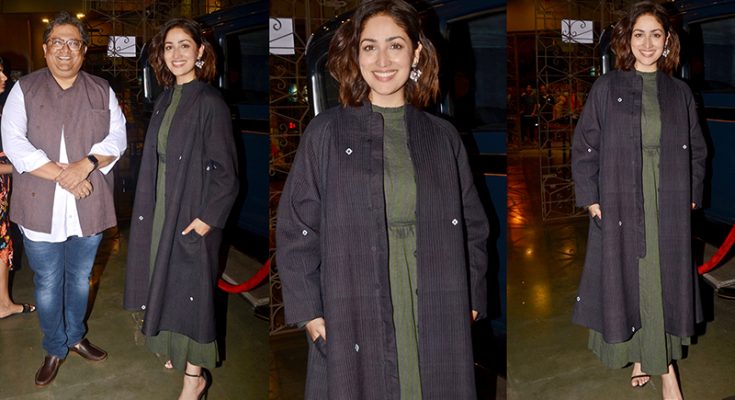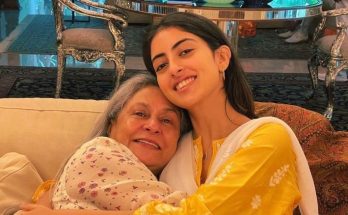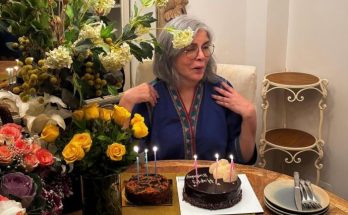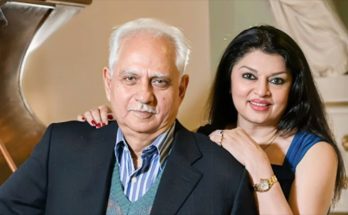IBNS: Since her debut on OTT streaming sites with A Thursday and Dasvi, Yami Gautam Dhar‘s screen image has changed from the beautiful, decorative leading lady to a strong, independent woman ready to take on any challenge. How does she fare in Lost directed by Aniruddha Roy Choudhury, and produced by ZEE5 and others. Shoma A. Chatterji engages in conversation with the Vicky Donor actor for a ringside view during her Kolkata visit for the preview of Lost before it streams on ZEE5 from Feb 16.
Your screen image has undergone a radical change with your debut on OTT. What do you feel?
When I was new to the industry I was just finding my feet, testing the waters. But I think mine was not a decorative role at all in Vicky Donor thanks to Shoojit Sarkar for choosing and directing me. I was happy with my cameo in Uri, The Surgical Strike and the brief appearance in Badlapur too. Then there is Kaabil where the role of the blind girl was very challenging specially when pitted opposite Hrithik Roshan. I’m eternally grateful to Shoojit sir for Vicky Donor. That was the first project of the rest of my life.
You were a shy person to begin with, as the story goes. Has that changed?
Yes, I was a very private person would be the right definition. When an aunt came to our home in Chandigarh and asked my mother to give her some photographs of me to show around for television and so on, I was so angry that I rushed out of the room and refused to come out till they had left. Destiny has its own ways. But I am still a private person in real life.
What is “Lost” all about? Can you explain briefly without giving spoilers away?
“Lost” as the film goes, is a reality on screen and also a metaphorical statement. One might even label it a political statement. The film is about a young man who goes missing. I, Vidhi, as a very committed journalist, am determined not only to find out where he has disappeared to and more importantly, why. But that is just the story. If you read between the lines, it is also about loss of values like honesty, trust, love and so on. But then you must watch the film.
You are portraying a committed, angry and very brave journalist in the film. What kind of homework did you work on?
Every role is a new challenge and I face it that way – a challenge. The director Tony-da (Aniruddha Roy Choudhury) asked me to internalize the character rather than depend on any frame of reference of any actual journalist. The character was not framed with an actual person. I had lots of discussions and interactions with him. “Don’t try to look strong” he said, “you must feel strong from inside” and I found the process very interesting.

You worked a lot with Bengali directors. What has the experience been like?
I am grateful to them for having chosen to cast me in their films. Their way of approach and their perspectives are different. I take each project as a training ground and a learning experience. On my part, I like to approach each role and film differently. But the final output depends much on the director too. I try to treat every performance in every film differently. But it is for the director to make the audience remember which character has performed the best or in degrees of excellence in his film. How he is capturing me on camera is very important. I have tried to understand what Tony-da wishes for me through the use of the camera. I feel this is a speciality for Bengali directors.
Since the film is releasing on an OTT platform, are you missing the response of a big screen, ticketed release?
Not really. I do not burden myself with such stressful thoughts. Of course, there are moments of anxiety – will the film run? Will the audience like my work? But in recent months, after some of my films were quite successful in terms of audience response, I do not feel anxious any more. But more importantly, the characters have remained with me. Whether the audience has liked it or not can be gauged within a few days of the film’s release.
What about the films that fell by the wayside and were big-time flops such as Total Siyapaa, Sanam Re and Junooniyat? How did they disturb you?
It was still work but not the kind of work I could see myself doing for a long time. Fifty-hour shoot weeks suck the life out of you; not putting in as much effort becomes essential for your survival. I knew I wanted to get out of it as soon as I could, so I started going out on audition calls during the lunch breaks.
Lost was shot on location in the city of Kolkata for 50 long days. What do you feel about the city?
This was during the pandemic and the times were not very shooting-friendly. But having lived here for 50 long days made me very familiar with the day-to-day problems one has to live with. I learnt exactly how long it takes to travel to Priya Theatre or to Howrah Bridge. I took the opportunity to make trips to Kalighat and also to Dakshineswar in the morning before the shoot.
Have you become more choosy after A Thursday and Dasvi?
Yes, I have become choosy in the sense that in whichever film I work, I must also like the film and enjoy it as an audience. Only then does it make sense. That is why I have rejected lots of offers of films like the ones you have mentioned were no-good either as films or my character and work in it.
Note for the future?
You never get to determine how your work is received. I’m lucky I even get to be in the movies. So each new project I choose is a spin of the roulette wheel, and I hope to keep winning against the house.





